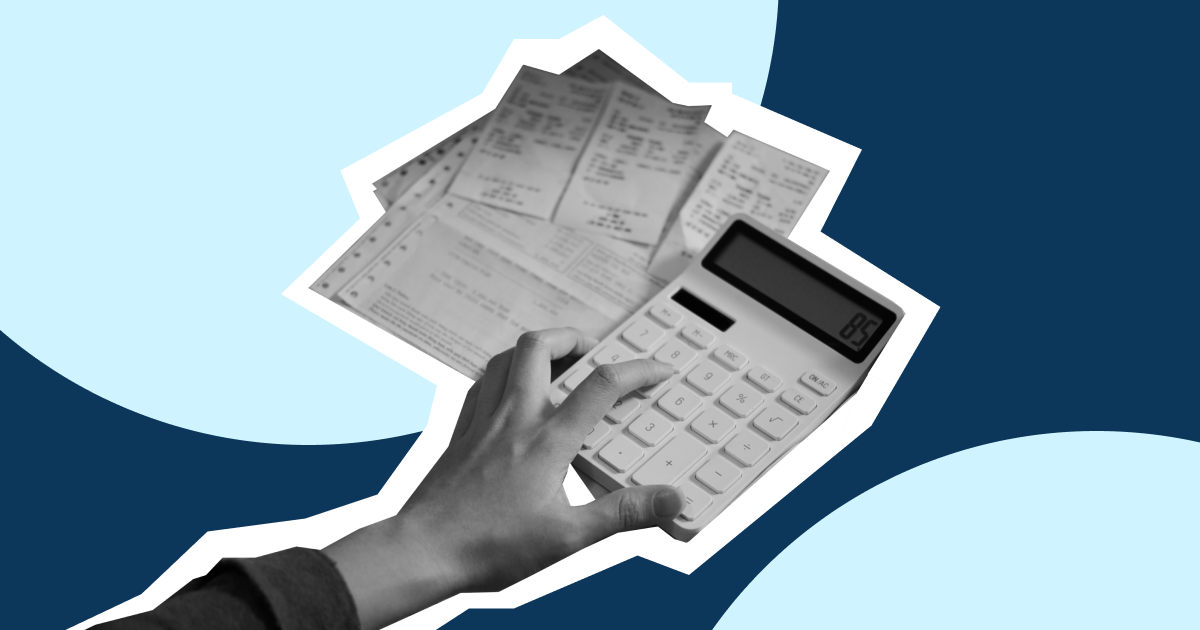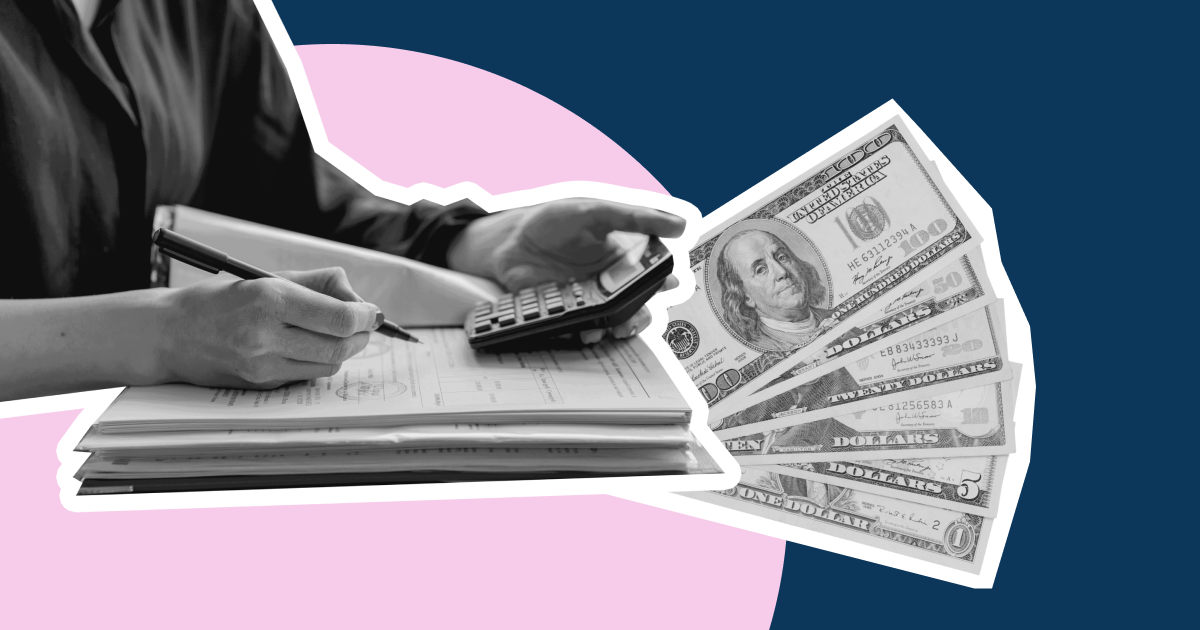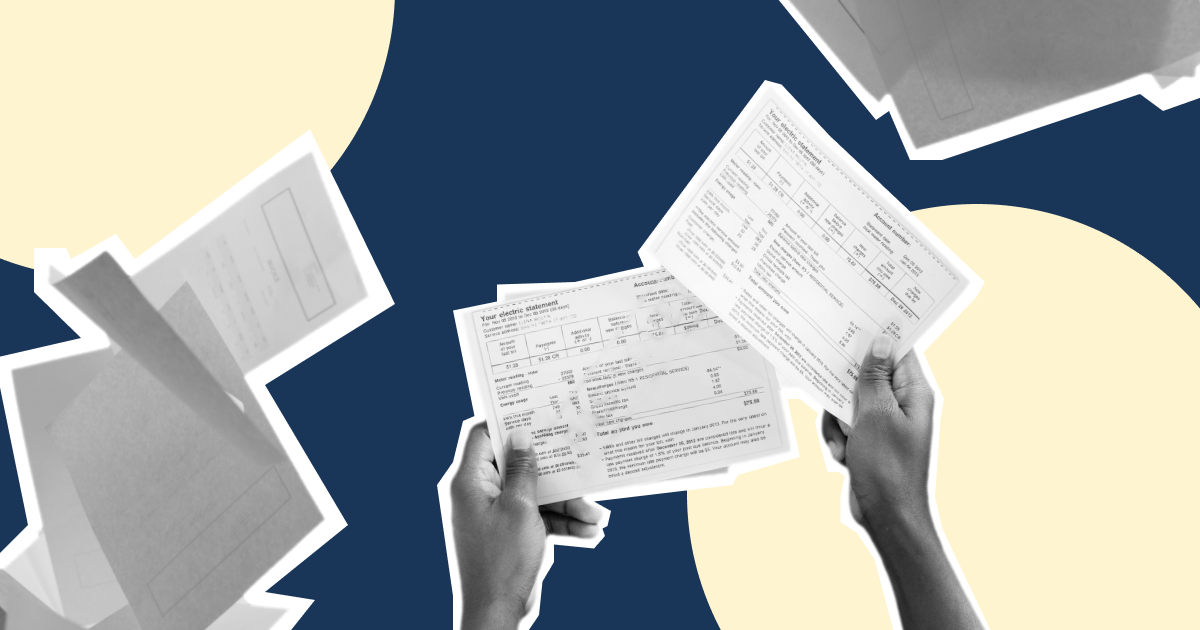Summary
- Accounts payable refers to the short-term obligations a business owes to suppliers or vendors for goods and services received on credit
- An efficient accounts payable process improves cash flow, strengthens vendor relationships, and ensures timely, accurate payments
- Manual invoice processing is still widely used, but it can lead to delays, duplication, and fraud—especially as invoice volume increases
- Automation in accounts payable helps reduce errors, speed up approvals, and provide better visibility into cash outflows
- Common accounts payable best practices include standardising invoice formats, verifying supplier information, centralising documentation, and performing regular audits
- Differentiating between accounts payable, trade payables, and notes payable helps maintain accurate financial records and reporting
When you run a business, no matter what scale it is at, you may be required to purchase goods on credit. Paying your vendors in bulk can help with cash flow management and also make it easier to settle accounts at the end of the month. Purchasing goods on credit leads to creation of accounts payable and having a clear accounts payable process streamlines your business payables and cash flow.
The accounts payable process involves processing invoices from vendors and suppliers and making payments on time. It may sound simple, but when you have a business that receives thousands of invoices, a manual process is not just time consuming, but it can also lead to errors.
In today’s digital age, you may think that a lot of companies have shifted their accounts payable process to software-based systems. However, research from PYMNTS.com shows that 80% of companies still use paper checks. In this article, we will explore what is the accounts payable process, what is accounts payable automation and why you should consider switching to a paperless processing system to improve your efficiency.
What is Accounts Payable?
Accounts payable is a business function that keeps track of all the short-term payments that you, as a business, owe to your vendors, suppliers and other creditors. When you purchase goods or services on credit, the vendor will have a timeline within which you have to repay the amount. This could be 30, 60, or 90 days. The amount of time you get to clear your dues depends on the vendor’s guidelines and what kind of relationship you have with the vendor.
When you receive an invoice or a bill against the goods and services you have purchased, the accounts payable process involves debiting the company’s balance sheet under assets and crediting the expense that becomes a liability.
What Qualifies as Accounts Payable?
When a company buys goods or services from a vendor or supplier with an agreement to pay later, it qualifies as accounts payable until the payment is made.
You will generally receive an invoice for the purchase, and the accounts payable process requires you to make an entry to your books of accounts for the same amount.
It is important to note that accounts payable relates to the goods and services purchased for the regular functioning of a business. Some examples of accounts payable items are raw materials, office maintenance and supply, transportation and logistics, equipment, office-related services, licensing and leasing, among other things.
Non-trade payables such as accrued expenses, including rent, dividends, wages payable, etc., do not qualify as accounts payable.
What is Accounts Payable Process?
To have a good accounts payable process, it is important that you map out the accounts payable process flow. Below, we have outlined a simplified version of the accounts payable process flowchart that can help you manage your invoices and bills better.
A simple accounts payable process flowchart would involve placing the order for the goods or services, receiving the goods and the invoice from the vendor, verifying the invoice, making relevant entries in the books of accounts, paying the vendor on time and finally closing the accounts payable ledger.
At the end of the process, accounts payable will no longer be a liability. Following the accounts payable process flow is essential to ensure that there are no errors or frauds committed in the expenditure.
TIP: When managing the accounts payable process, it’s important to implement the “three-way match” procedure, which is widely considered the gold standard for controlling AP. This involves comparing the invoice, the purchase order (PO), and the receiving report (Goods Receipt Note or GRN) to ensure that payments are made only for goods or services that were both ordered and received. This practice significantly reduces the risk of errors and fraud.
Now that you know what is the accounts payable process, let’s move on to understanding and differentiating between some common terms that are often confused with accounts payable.
Differentiating Among Accounts Payables, Trade Payables And Notes Payables
Some companies tend to have different payables accounts to make their accounting more transparent and easy to understand. Some of the most common payables apart from accounts payables are trades payables and notes payables.
Trade payables refers to the amount that a company owes its vendors for inventory-related goods. This includes business supplies or raw materials that make up the inventory of the business.
Notes payables refers to the amount that a company owes in terms of debt, loans or other borrowings that a company has. It has nothing to do with goods or services.
Accounts payable is an umbrella term that encompasses all of a company’s short-term payment obligations. It may or may not include trades payables. Notes payables is a separate liability that does not come under the accounts payable category.
In addition, it’s important to distinguish accounts payable (AP) from accounts receivable (AR). AP represents what your company owes to vendors and suppliers, while AR tracks what your customers owe you. Understanding both sides of the ledger helps businesses maintain accurate cash flow projections and avoid unexpected financial shortfalls.
Accounts Payable Process Best Practices
To optimise your accounts payable process, follow these accounts payable process best practices:
Simplify the Workflow
A complicated accounts payable process flow is bound to attract errors. Instead, keep it as simple as possible. Define the workflow so that everyone knows what they are in charge of. Run monthly checks to see if the process that you have put in place is working.
Make Invoicing Easy
Have a standardized invoicing system that comes into a central location. This will ensure that whether you are entering your vendor payment details manually or through software, there is no duplication.
Use Technology
One of the best things you can do for your accounts payable process is to use technology to improve it. You can eliminate routine and mundane tasks for your employees and allow them to focus on more important tasks in the accounts payable process such as dispute management.
Have a System to Eliminate Fraud
The accounts payable process leaves room for fraud. Employees could easily create fake vendor accounts and issue invoices to have them processed to themselves. To avoid this, ensure that the responsibility for creating vendor accounts is allocated to the right people and that there are checks and balances in place to verify every vendor entered into the system.
Review Data on a Regular Basis
When you review data on a regular basis, you can ensure that human errors, machine errors and fraud are avoided. Establish regular checks on your data and systems to make the accounts payable process as smooth as possible.
Determine Key Performance Indicator (KPI)
Finally, it’s essential to set specific KPIs to evaluate the efficiency of your accounts payable process.
One of the useful metrics to use is Days Payable Outstanding (DPO), which measures the average time your company takes to pay its vendors. Optimising DPO can improve cash flow, prevent late fees, and strengthen supplier relationships. You can set clear guidelines on how many days you should make payments to your business partners.
Another useful KPI is Cost per Invoice, which tracks how much it costs to process each invoice, helping you identify inefficiencies and highlight opportunities for automation or process improvements.
Avoiding Double Counting in the Accounts Payable Process
Sometimes, during the process of recording accounts payable, there is a possibility that the same invoice is recorded twice. The chances of this happening are higher when accounts payable invoices are recorded manually. This error can increase your company’s liability and eat into your margins if it goes unnoticed.
So, how do you ensure that you avoid duplication in the accounts payable process?
- Have a single vendor master file to ensure that you do not duplicate vendors. Assigning a unique vendor code to each vendor will eliminate duplication when entering invoices.
- Always double-check for mis-keying. When employees enter details into your system, they may misread numbers or letters that can lead to errors. Using an accounts payable automation software that digitally read invoices can reduce this error. However, you need to ensure that vendors send invoices in a standardized format so that the system does not end up picking on wrong inputs.
- Request your vendor for a single source document instead of accepting multiple documents. For instance, a vendor may send a statement or quotation first and then issue the invoice. If you end up counting both, then you are going to have duplicated amounts on your hand. If you are in the practice of accepting multiple source documents, ensure that only the final invoice gets recorded in the accounts payable system.
- Another way to avoid duplication is to have a single system for invoice filing. For example, if a vendor sends an invoice via post and then sends an email as a reminder, there is a possibility that you end up recording both. Instead, try to streamline how you receive invoices and record them immediately. Have all your invoices sent to a central location.
- Put a system in place to record invoices that have been cleared. This way, you will be less likely to make double payments. An accounts payable automation software can help you in this regard because it will automatically categorize payments on your behalf.
Importance of Accounts Payable Process
Managing accounts payable process is essential because ignoring it can have negative ramifications for your company. For instance, if you don’t know how much you owe to vendors and suppliers, you will not be able to get a real picture of your company’s overall financial health. This can impact your financial projections. In turn, you could find it difficult to get credit or loans for your company when you need it.
Moreover, having a poor reputation when it comes to managing your accounts payable process flow can have a bad impact on your brand. This could deter vendors and suppliers from working with you, having a direct impact on your supply chain.
Mismanaging your accounts payable process flow can also lead to late fees and interest payments that can quickly add up to impact your bottom line negatively.
- The accounts payable process flow helps you take charge of paying your business’s bills on time. This helps maintain strong relationships with your vendors and suppliers.
- Strong invoice management can help you stay organized and never miss a payment. Having a poor accounts payable process can lead to missed deadlines and cash flow issues.
- Timely payment of bills also helps you maintain a strong credit score. This way, you will be eligible and able to get a line of credit whenever you want.
- The accounts payable process is extremely important for cash flow in a business. When you have a list of vendors you need to pay on priority, you know which ones to clear first. Without an accounts payable process flow, you may end up paying vendors who are willing to give you some more time to clear expenses and miss out on ones that need to be paid on priority.
- Having a solid accounts payable process also ensures that you steer clear of frauds and mismanagement of funds. Since you know exactly where your money needs to go, you can keep better account of your funds.
A great way to ensure that you have a strong accounts payable process flow is to enable automation of the accounts payable process. Getting a good accounts payable automation software can smoothen out the process and enable better management of your payables.
What Is Accounts Payable Automation?
Accounts payable process automation is a way of integrating accounts payable automation software into your traditional accounts payable process. It includes accounts payable invoice automation, tracking of timelines, and automatically clearing payments as and when they are due. In short, it automates the most repetitive and mundane aspects of the accounts payable process, and frees up your employees to take on more meaningful tasks.
Accounts payable automation software can do a number of tasks including converting invoices received from your suppliers into a digital format, automating invoice approval, providing notifications for payments that need to be cleared and updating the same in your accounting software. All of these culminate to enable a smooth accounts payable process flow that reduces the dependence on employees to take care of them manually.
To better understand how automation can help streamline the accounts payable process, you can take a look at an example below:
A small consulting firm in Singapore once relied on spreadsheets to manage supplier invoices. With multiple team members entering data, duplicate entries caused confusion and strained supplier relationships. After adopting automation software that matched invoices to purchase orders, the firm reduced errors by 60% and gained greater visibility into its cash flow.
What is Automation in the Accounts Payable Process?
Handing over any part of the accounts payable process to software or technology can be counted as automating your accounts payable process. The best accounts payable automation software will be able to help you with a number of tasks, including converting your invoices into a digital format, matching your invoices to the purchase order, sending the invoice for verification to different stakeholders, setting up payment reminders, making payments directly to your supplier or vendor, and much more.
Usually, accounts payable automation has machine learning and artificial intelligence at play. For instance, you could use automation software with optical character recognition (OCR) to convert paper invoices into digital invoices. Machine learning can then be employed to identify patterns and draw inferences from the data gathered. This can help you make vital decisions about your payment process and also manage cash flow better.
In Singapore, businesses can further enhance efficiency by integrating automated accounts payable systems with local payment mechanisms, such as GIRO for bulk transfers or PayNow Corporate for instant payments. Such integration streamlines payments, improves cash flow management, and boosts vendor satisfaction.
Why Choose Accounts Payable Automation Software For Your Business?
We have already outlined the accounts payable automation benefits. In this section, we will talk more in detail about how accounts payable process automation can benefit your business.
Reduced Errors
Accounts payable processes that are handled by humans are prone to errors. Excel sheets leave plenty of room for error. When you have the best accounts payable automation software, you can eliminate errors and put in place a streamlined accounts payable process.
Faster Invoice Approvals And Payments
When there are fewer errors, the accounts payable process becomes a lot more efficient and fast. With accounts payable invoice automation solution, you will have faster payment times and automatic settlements.
Control And Visibility
By automating the accounts payable process, not only does it become easier for you to track and manage accounts payable, but your vendors and suppliers can also check the status themselves. This leads to more transparency and confidence building. Your finance department will also benefit from a clear view of outgoing payments, payment data and cash flow situation.
Improved Productivity And Cost Savings
When you have a streamlined accounts payable process flow thanks to accounts payable process automation, your employees will be freed up for other important tasks. In the long run, you will save money on hiring costs and a more efficient accounts payable system.
Better Relationships
Automating the accounts payable process leads to a faster, more efficient and transparent system that makes you a delight to work with. More vendors, suppliers and even lenders will be willing to work with you, making the overall business process smoother for you.
Leverage Early Payment Discounts
With the best accounts payable automation software, you can increase the speed and accuracy with which you make payments. When you make payments on time or early, your vendors and suppliers are likely to give you good discounts.

Despite these benefits, it’s important to consider the limitations of accounts payable automation before implementation. For instance, automation works best when invoices follow standardised formats. If vendors submit inconsistent layouts or scanned copies, some manual review will still be required.
Similarly, while automation reduces human error, it still depends on the accuracy of the source data. If vendors provide incorrect information, the system may process it ‘accurately wrong.’
Therefore, even with automation in place, human oversight and sound judgment remain essential to ensure accuracy and compliance.
How Aspire Can Help Automate Your Accounts Payable Process
Aspire’s accounts payable automation software can help you automate all your accounts payable needs in a simple and easy way. You can pay invoices by forwarding an email, optimise your cashflow, and manage all your bills in one place. Our AI assistant will take care of manual data entry, allow you to schedule payments and get real-time visibility on your payments.
All you need to do is forward your bills to Aspire, turn on notifications, make any edits to payments and approve when ready. It’s really that simple.
Frequently Asked Questions

What are the steps for accounts payable?
The accounts payable process generally follows these steps:
- Place an order for goods or services.
- Receive the goods or services and the supplier’s invoice.
- Verify the invoice details against the order and receipt.
- Record the invoice in the accounting system.
- Approve the payment.
- Make payment to the supplier by the agreed due date.
- Close the payable entry in the ledger.

What is the 3-way process in accounts payable?
The three-way match is a control mechanism to prevent errors and fraud. It involves matching three key documents before approving payment:
- The supplier’s invoice
- The purchase order (PO)
- The receiving report or goods receipt note (GRN)
Only when all three align is the payment released, ensuring that your business pays only for goods or services that were correctly ordered and received.

How does the accounts payable process work?
Accounts payable works by recording your company’s short-term obligations to suppliers and vendors. When you purchase goods or services on credit, the invoice is logged in your accounting system as a liability. Once the payment is approved and made, the liability is cleared. A well-managed process ensures timely payments, avoids duplicate entries, and maintains healthy cash flow for the business.
- PYMNTS, Bottomline Technologies - https://www.pymnts.com/tracker/next-gen-ap-automation-september-2019/#:~:text=The%20Next%2DGen%20AP%20Automation,and%20earn%20rebates%20on%20transactions
- Investopedia - https://www.investopedia.com/terms/a/accountspayable.asp
- Associaton for Financial Professionals - https://www.financialprofessionals.org/training-resources/resources/articles/Details/making-the-case-for-ap-automation-at-afp-2024
- PYMNTS, Corcentric - https://www.pymnts.com/study/solving-accounts-payables-frictions-with-automation-technology/

.png)








%201.webp)


.webp)